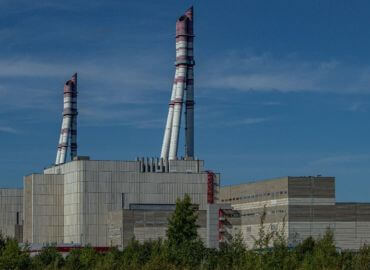- RUSSIA'S ARMY WILL REMAIN IN BELARUS
- "REFERENDUM" AT A GUNPOINT
- RUSSIA REJECTS GIVING A $3.5 BLN LOAN TO LUKASHENKA, AGREES TO $1 BLN INSTEAD
- SWISS CITIZEN RELEASED IN EXCHANGE TO DIPLOMATIC PRESENCE
RUSSIA'S ARMY WILL REMAIN IN BELARUS
This is an update on the ongoing political crisis in the Republic of Belarus prepared for you by the International Strategic Action Network for Security (iSANS).
Although joint military exercises «Allied Resolve» ended on February 20, Russian troops remain in Belarus after the drills – and more of them are reported to be arriving (for the most detailed and precise OSINT update on movement or Russia’s troops, see here). According to Ukraine’s minister of defense, nearly 9,000 Russia’s troops remain in Belarus, although foreign intelligence speaks of a lot higher numbers.
Military buildup in Belarus may be yet another distraction used jointly by Lukashenka and Putin to ensure «referendum» at gunpoint. Considering Russia’s operation in the so-called DNR/LNR was grounded on pre-arranged artificial «humanitarian crisis» (for instance, evacuation videos by DNR/LNR «leaders» were recorded long before the escalation), the actual reasons for Russia’s troops to stay in Belarus is distraction from entirely illegal imitation of «referendum».
On Saturday, February 19 (the day before the end of the exercises), trains carrying Russian military equipment continuedto arrive in Belarus. It was also reported that the Russian serviceman have started renting flats for at least 3-4 months in the town of Shchuchin, in northwest Belarus, where a military airfield is located.
On February 21, a group of nearly 200 trucks and armed vehicles of what has been identified as Russia’s National Guards (Rosgvardiya / internal troops) from Chechnya, was spotted in Southern Belarus for the first time. Later the same group was filmed when driving towards Kamaryn, a village nearly 1 km away from Ukraine’s state border with Belarus.
Prior to that, on 19 February, responding to a journalist’s question, the head of the Lukashenka’s Security Council Aliaksandr Valfovich said: “No one said that Russian troops would return to Russia tomorrow or the day after tomorrow. The Allied Resolve exercise ends tomorrow, but the inspection continues. Until what date, the commanders-in-chief [Putin and Lukashenka] will decide.”
On 20 February, Lukashenka’s «Defence Minister» Viktar Khrenin explained the decision as follows: “Due to increased military activity near the borders and the escalation in the Donbas, Belarus and Russia decided to continue joint inspections of response forces”. He added that Belarus and Russian “don’t want war, but the West don’t want to listen to us. That’s why we [Belarus and Russia – iSANS] have created a group of forces that will fight back if necessary.”
This claim contradicts recent statements by Lukashenka’s «Foreign Minister» Uladzimir Makei. On 16 February, he said that “not a single Russian serviceman or piece of Russian military equipment will remain in Belarus after the exercises.”
Lukashenka himself said on Thursday last week that he had not yet decided whether or not to withdraw Russian troops from Belarus, but it is becoming evident that Russian troops will remain indefinitely. The decision was supposedly made during his meeting with Putin on February 18-19. But during the joint press conference there was no statement on the withdrawal of the Russian military. Lukashenka only announced the construction of a port near St. Petersburg, where Belarus would load “millions of tons of cargo.” According to him, Putin gave an order for the construction to begin immediately. Also, when asked by a Russian journalist how long he would remain president, Lukashenka said that he would have to consult with Putin and decide: “As for my presidency, we will decide with my elder brother [Putin]. What are you worrying about? Everything will be all right.”
Amid the increased concern that the Russian troops in Belarus may be involved in the attack on Ukraine, the US and UK issued statements advising against all but essential travel to Belarus.
As of February 21, the position of Lukashenka’s regime is that Russia’s troops will only return to base «when there is objective to do so» and this decision will be factored by «NATO pullback«. Lukashenka is now facing even more pressure as he is facing the need to recognize the so-called DNR/LNR to payback to Putin for his support (which only means Lukashenka must face new sanctions simultaneously with Russia).
Sviatlana Tsikhanouskaya’s Office issued a demand for the immediate withdrawal of Russian troops from the territory of Belarus.
"REFERENDUM" AT A GUNPOINT
The so-called «Belarus’ Central Election Commission» has classified the names of members of district commissions and polling stations ahead of a referendum on constitutional amendments due to take place on 27 February. According to a representative of the commission, the decision was taken “for security reasons” even though according to the Electoral Code of the Republic of Belarus, the decision on the formation of commissions must specify “the surname, first name and patronymic of each commission member” and hiding this information is a direct violation of law
On 17 February, it was also announced that reserve colonel Dzmitry Paulichenka would form special groups of spetsnaz veterans to protect the members of election commissions during the referendum. The idea belongs to the Deputy Minister of Internal Affairs Mikalai Karpiankou. “We will be acting in Minsk, regional capitals and some district centres – on the instructions of the police officers, being in constant communication with them,” Paulichenka said.
Dzmitry Paulichenka is one of the most infamous regime associates. He has been continuously on EU blacklists since 2004. He is named as the organizer of Lukashenka’s “death squads” that abducted and murdered his political opponents in the late 1990s and early 2000s. According to Paulichenka, his «mobile groups» that operated along with Lukashenka’s troops on no legal grounds, coordinated their activity with regular security troops in all major political campaigns since 1999 – and played a particular role in 2020 crackdown. During 2006 elections the group under Pulichenka’s leadership consisted of as many as 600 former spetsnaz officers.
With the latest developments in an around Ukraine and Putin’s aggressive steps this week, there is a serious risk that a «referendum» at a gunpoint in Belarus may get lost in Russia-Ukraine agenda. In the long run, growing presence of Russia and increasing repressions create unprecedented need to support national identity of Belarusians – foremost, Belarusian language as ongoing Russification campaign will lead to complete removal of Belarus-language schools in the next 8 years, according to the Institute for War & Peace Reporting.
RUSSIA REJECTS GIVING A $3.5 BLN LOAN TO LUKASHENKA, AGREES TO $1 BLN INSTEAD
Lukashenka will not receive the requested USD 3.5 billion from the Eurasian Fund for Stabilization and Development (EFSD), Reuters reported on 16 February. According to Russian Finance Minister Anton Siluanov, the fund has no capacity to disburse such an amount. According to Siluanov, this year Russia is ready to refinance foreign debt of Belarus to Moscow and the EFSD in the amount of USD 1 billion.
“We see the need for support for refinancing those debt obligations that Belarus has to foreign creditors, first of all to Russia, because of the restrictions that have affected our neighbour. And we are ready here to consider proposals of our Belarusian colleagues on assistance to refinancing debt obligations,” Siluanov said.
In December 2021, Lukashenka requested USD 3.5 billion from the EFSD to refinance his debt due to the lack of assistance from European funds after sanctions were imposed on Minsk.
According to Belarusian economist Katsiaryna Barnukova, Russia’s refusal will not lead to a default or a serious economic crisis: “Last year Belarus had a large foreign trade surplus – USD 3.8 billion. That is, there is no shortage of foreign currency liquidity in Belarus at the moment. Next year the Belarusian budget will have to repay less than USD 4 billion of the foreign debt. This amount doesn’t have to be borrowed from the Eurasian Development Bank. This debt can be paid off from the country’s gold and foreign currency reserves, which amounted to USD 8.5 billion at the beginning of the year, of which USD 4 billion were liquid. It was not incidental that during his last meeting with Lukashenka Vladimir Putin said that despite the sanctions and the pandemic, the economy of Belarus was performing well. What he meant was that Belarus doesn’t really need the money.”
SWISS CITIZEN RELEASED IN EXCHANGE TO DIPLOMATIC PRESENCE
On 18 February, Natallia Hersche, a Belarusian-Swiss dual citizen, was released from a detention center in Belarus after she spent 17 months behind bars. Her release was announced by the president of the Swiss Confederation, Ignazio Cassis: “I am glad that Swiss diplomatic efforts have paid off. We with the Swiss Embassy in Belarus continue to call for the release of all those arrested for exercising political and civil rights.”
Hersche has already returned to Switzerland. She was met at the airport by the deputy state secretary of the Swiss Foreign Ministry Johannes Matyassy. According to him, there was no “deal” between Belarus and Switzerland on the release of Natallia Hersche. “Minsk didn’t impose any conditions, and the released woman can enter Belarus at any time,” he said. In reality, however, Hersche was released only after new ambassador of Switzerland arrived to Minsk and provided the head of Lukashenka’s international office (a.k.a. as «Belarus MFA») the letters of credentials.
Hersche was detained on 19 September 2020 during one of women’s marches and was sentenced to two and a half years in prison for “resisting a police officer”. Hersche took off a balaclava from the head of Siarhei Konchik, an OMON employee who was involved in beating of women in Minsk downtown during a peaceful gathering in 2020. When asked by journalists whether she regretted her action, Natallia replied: “Not a single percent”.
Best regards,
iSANS team










